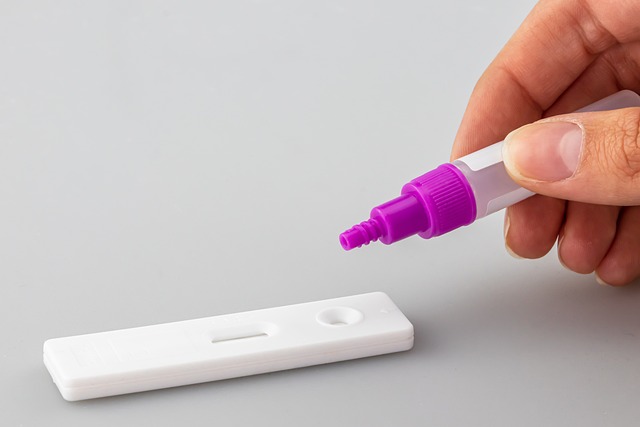Unbalanced cholesterol levels, detected through simple Diabetes blood test UK, pose significant health risks, especially for diabetics. The test identifies two types of cholesterol: LDL ('bad' – increases plaque buildup) and HDL ('good' – aids in removing excess cholesterol). Maintaining optimal levels (total cholesterol < 5mmol/L, LDL < 3mmol/L, HDL > 1.0mmol/L, triglycerides < 2.3mmol/L) is crucial for cardiovascular health. Diabetes blood test UK empowers individuals to take control of their health and make necessary lifestyle adjustments or seek medical intervention using tools like statins.
Cholesterol levels, often overlooked, can significantly impact our health. This simple yet powerful metric, measurable through a routine diabetes blood test UK, provides vital insights into heart health and cardiovascular risks. Understanding cholesterol basics and its significance is the first step towards proactive wellness. This article guides you through interpreting results, empowering you to make informed decisions about your well-being, especially in light of potential diabetes-related risks.
- Understanding Cholesterol: The Basics and Its Significance
- Diabetes Blood Test UK: Unlocking Insights with Simple Tests
- Interpreting Results: What Do Your Cholesterol Levels Mean?
Understanding Cholesterol: The Basics and Its Significance
Cholesterol is a waxy substance found in every cell in our bodies, playing a crucial role in maintaining good health. It’s essential for building and repairing cell membranes, producing hormones, and supporting nerve function. However, when cholesterol levels become unbalanced, it can lead to significant health issues. High cholesterol, often measured through simple blood tests like Diabetes Blood Test UK, is a major risk factor for cardiovascular diseases, including heart attacks and strokes.
There are two main types of cholesterol: LDL (low-density lipoprotein) and HDL (high-density lipoprotein). Known as ‘bad’ and ‘good’ cholesterol respectively, they differ in their effects on the body. High levels of LDL cholesterol can lead to plaque buildup in arteries, increasing the risk of heart disease. In contrast, HDL cholesterol helps remove excess cholesterol from the bloodstream, acting as a protective mechanism. Regular monitoring, often through routine Diabetes Blood Test UK, is vital for managing cholesterol levels and maintaining overall cardiovascular health.
Diabetes Blood Test UK: Unlocking Insights with Simple Tests
In the UK, managing health effectively starts with simple yet powerful tools like the Diabetes Blood Test. This routine check offers valuable insights into overall well-being, particularly for those at risk or living with diabetes. The test is designed to measure blood sugar levels, providing a clear picture of how the body processes glucose. Early detection through such tests is crucial in the UK’s national effort to combat diabetes, as it allows for prompt intervention and better management.
The Diabetes Blood Test UK process is straightforward. A small sample of blood is taken, usually from a finger prick or a vein, and analyzed for its glucose content. Results can indicate whether an individual has normal blood sugar levels, prediabetes (elevated but not high enough to be diagnosed as diabetes), or diabetes. This simple test empowers individuals to take charge of their health and make necessary lifestyle adjustments or seek professional guidance.
Interpreting Results: What Do Your Cholesterol Levels Mean?
When interpreting your cholesterol levels, it’s important to understand what each figure means in the context of your overall health. In the UK, healthcare professionals typically measure total cholesterol, LDL (low-density lipoprotein) or ‘bad’ cholesterol, HDL (high-density lipoprotein) or ‘good’ cholesterol, and triglycerides. A diabetes blood test UK guidelines suggest that optimal levels for adults are below 5mmol/L for total cholesterol, under 3mmol/L for LDL, above 1.0mmol/L for HDL, and less than 2.3mmol/L for triglycerides.
High levels of LDL cholesterol can increase the risk of heart disease, while high HDL levels offer some protection. High triglyceride levels are also linked to an increased risk of cardiovascular problems, especially when combined with low HDL levels or high LDL levels. If your test results show abnormal levels, your doctor might recommend lifestyle changes such as diet and exercise, or suggest medications like statins to help manage cholesterol levels and reduce the risk of health complications, particularly if you have diabetes in the UK.
Cholesterol management is a key aspect of maintaining overall health, especially for those living with diabetes. The Diabetes Blood Test UK provides an accessible way to monitor cholesterol levels, offering valuable insights into potential heart health risks. By understanding your results and taking appropriate action, you can significantly enhance your well-being. Regular checks and informed decisions are essential steps towards a healthier future.
